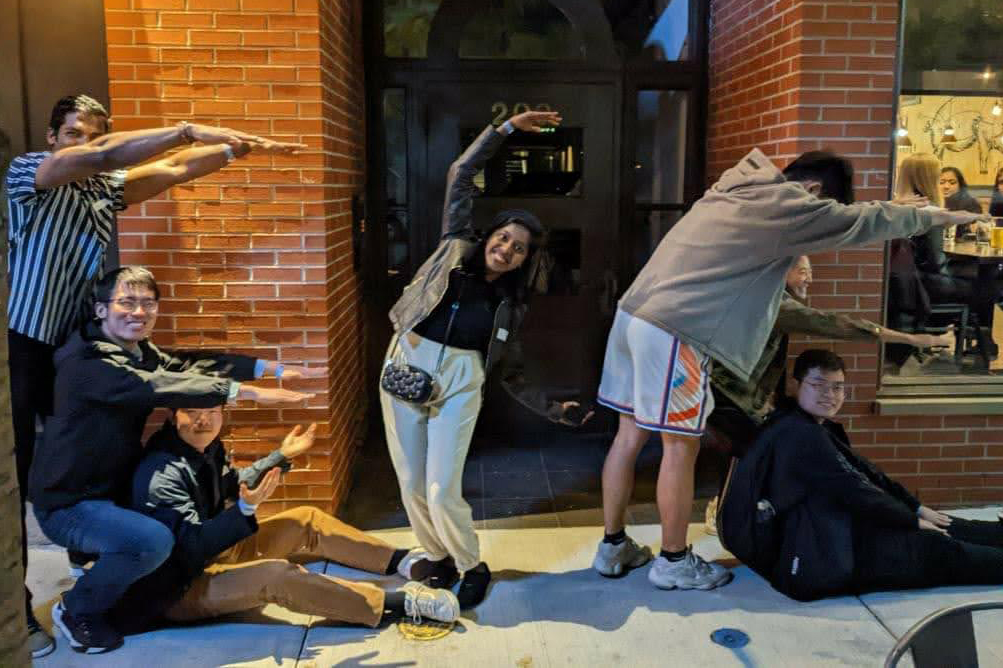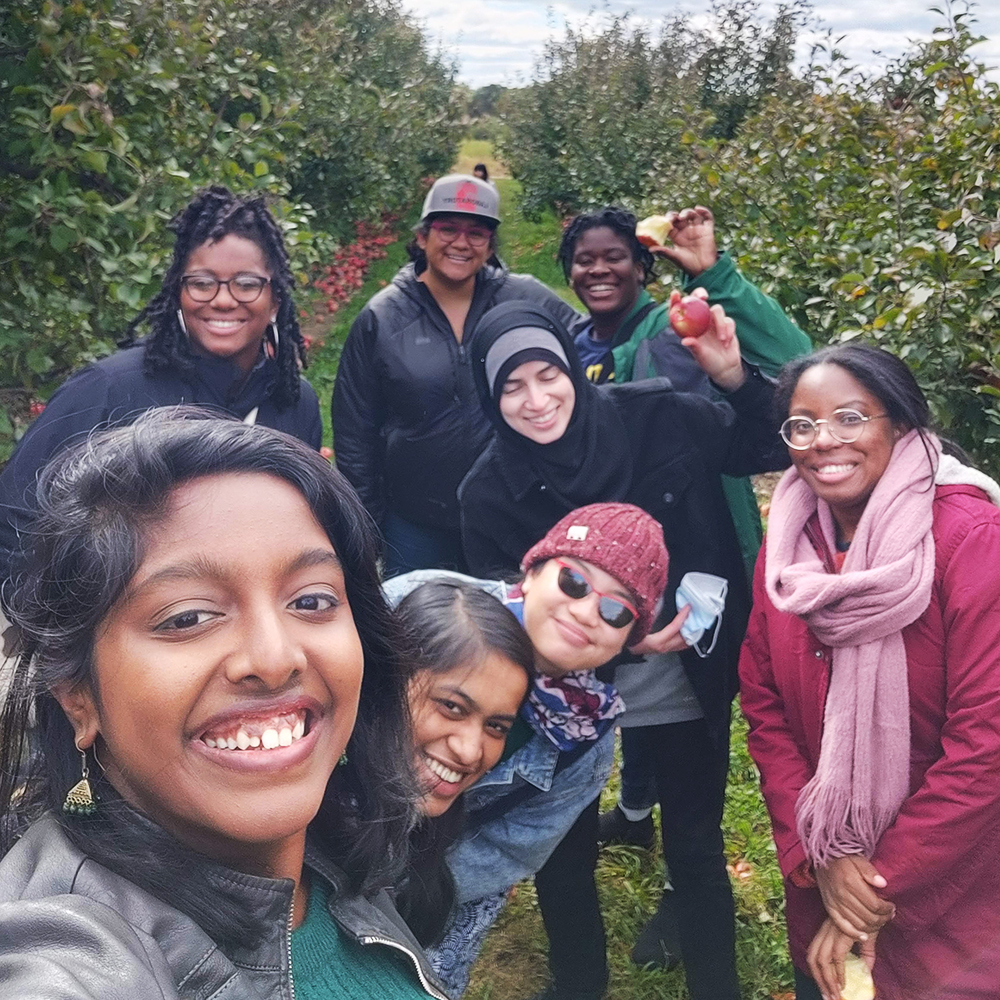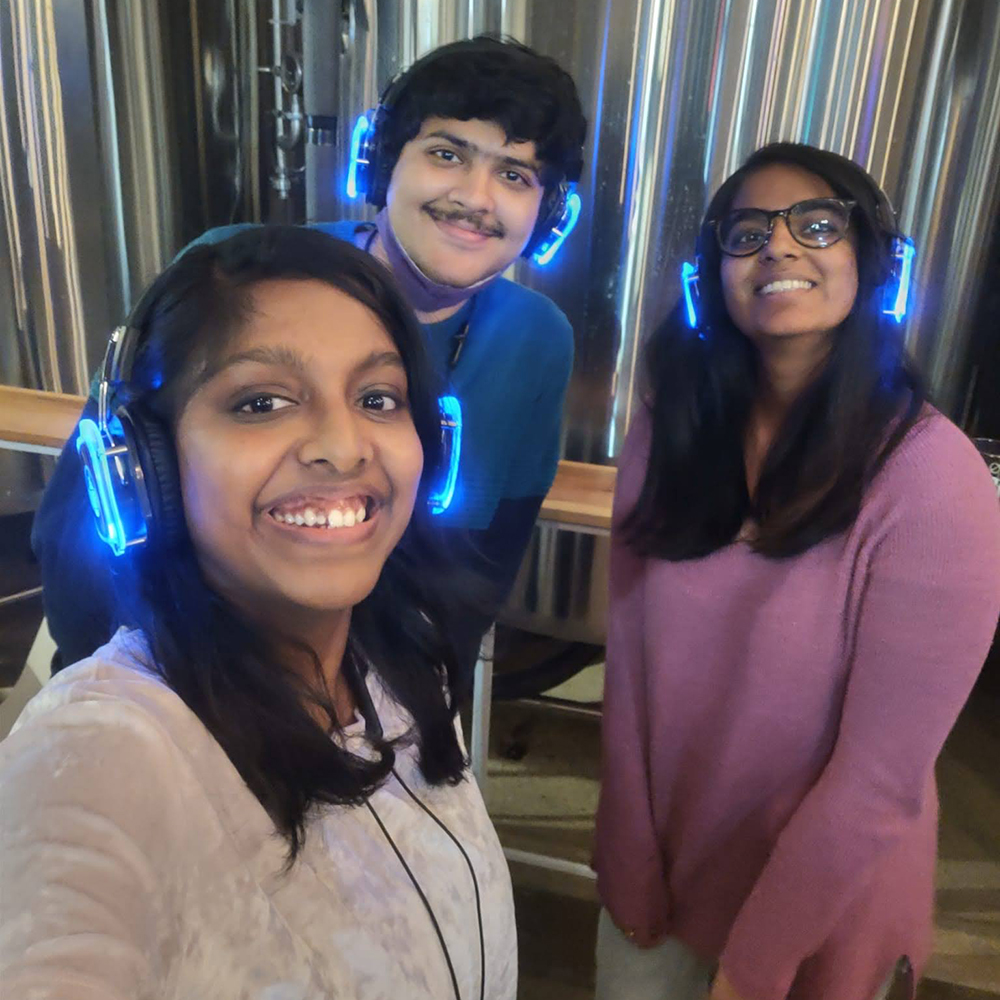Swetha Sakunthala Subbiah seeks more autonomous transportation and less motion sickness

For ECE Master’s student Swetha Sakunthala Subbiah, designing advanced transportation is a family tradition. Her grandfather worked for the Indian Space Research Organization (ISRO), and he’d bring her pictures and miniature rocket models.
“He was always talking about the satellites and the rockets and the launch vehicles,” she said. “That really sparked my interest to learn more about all of this.”
Subbiah’s passion for the space industry brought her to the Indian Institute of Space Science and Technology, where she earned her Bachelor of Technology degree in Electrical and Computer Engineering. For one of her class projects, she was tasked with making a computer game similar to Battleship, and everything clicked into place.
“The fact that I could make a computer think like a human and play a game with you — it blew my mind,” she said. “I was like, this is what I want to do. I want to make machines do what we can do.”
I want to make machines do what we can do.
Swetha Sakunthala Subbiah, ECE Master’s student
This type of engineering — designing equipment and systems to perform desired behaviors/functions — is known as “Control Systems.” Subbiah then followed her grandfather’s path and joined the ISRO as a control systems engineer. She worked on the realization and operation of checks for electrical, power, and control systems for rocket subassemblies.
While Subbiah enjoyed her time at the ISRO, she was becoming more and more interested in autonomous cars and vehicles. She decided to pursue a master’s degree so she could develop her skills and gain experience in autonomous applications.
“I chose Michigan, because I liked the research that was happening,” Subbiah said. “I was looking at the work happening with MCity and Michigan’s partnership with Ford, and I was very inspired.”

Subbiah spent an entire summer working at Mcity on a project addressing motion sickness in autonomous vehicles. She got this opportunity by responding to an open invitation to apply to be part of Prof. Shorya Awtar’s group working on his ongoing Motion Sickness Mitigation in Autonomous Vehicles project.
“I get motion sickness, so that project was a big highlight for me,” Subbiah said.
For many people, motion sickness is aggravated when they’re riding as a passenger versus operating the vehicle as a driver. Since everyone riding an autonomous vehicle will be a passenger, mitigating the effect of motion sickness is particularly important for the widespread adoption of autonomous vehicles.
Along with four additional students from different departments, Subbiah was mentored by mechanical engineering doctoral students and members of Awtar’s research group Nishant Jalgaonkar and Daniel Schulman (who is also working on a master’s degree in ECE).

Subbiah also spent time working as a Research Assistant at the Wireless Integrated MicroSensing and Systems (WIMS) Lab. She worked under Prof. Yogesh Gianchandani and Dr. Yutao Qin on the Microfabricated Gas Chromatograph project, which is a fully electronic micro gas chromatography system that detects and monitors indoor air pollutants. Subbiah helped advance the algorithm responsible for detecting and identifying peaks in the chemical data.
“That was a great group of people,” Subbiah said. “I was mostly remote, but I got to join them on fun group activities, like hiking and picnicking. It was really fun.”
Subbiah also served as a Student Coding Coach for the Joy of Coding summer program taught by Prof. Raj Rao Nadakuditi. The program is an online course designed for high schoolers where students learn how to use Python and study how coding powers apps such as TikTok, Instagram, Snapchat, and Siri.

When Subbiah isn’t working, she enjoys hiking in the arb, playing board games, competing in trivia night at Bløm Meadworks, and watching Formula One racing.
“I’m a Checo [Sergio Pérez] fan, so I support the Red Bull Racing team,” Subbiah said. “A lot of my friends here are also F1 heads, so we have watch parties, and there’s always a lot of shouting, because people support different drivers. It’s a lot of fun.”
After graduation, Subbiah will be working for Skyryse, which is a startup focused on autonomous flight, specifically helicopters. For her, autonomous aviation is a fun middle ground between the space flight industry that inspired her as a child and the control systems expertise she gained studying autonomous cars at Michigan.
“What I’ll remember most about U-M is the culture of everyone being really nice and kind and down to earth,” Subbiah said. “There’s always someone around to help you, and it inspires you to want to do the same and give back to society. I’m definitely going to miss it.”
What I’ll remember most about U-M is the culture of everyone being really nice and kind and down to earth.
Swetha Sakunthala Subbiah, ECE Master’s student
 MENU
MENU 
